In 2019, the Centre saw some historic developments with respect to the recognition of the fundamental human rights of Indigenous Peoples. In order to help inform understandings and dialogue about the Declaration on the Rights of Indigenous Peoples Act and the United Nations Declaration on the Rights of Indigenous Peoples the Indian Residential School History and Dialogue Centre will be periodically issuing short commentaries on what some of the developments that are taking place mean, issues we may consider when reviewing them, and ideas about the work we must collectively do going forward. These commentaries have been developed in dialogue with leading experts, including those on the front lines of driving forward some of the changes we are seeing. It is hoped that by sharing these perspectives, ever more informed, effective, and co-operative efforts will advance in support of true reconciliation.
We welcome your feedback on these commentaries, as well as ideas you may have for other topics that would be helpful for us to focus on in the future.
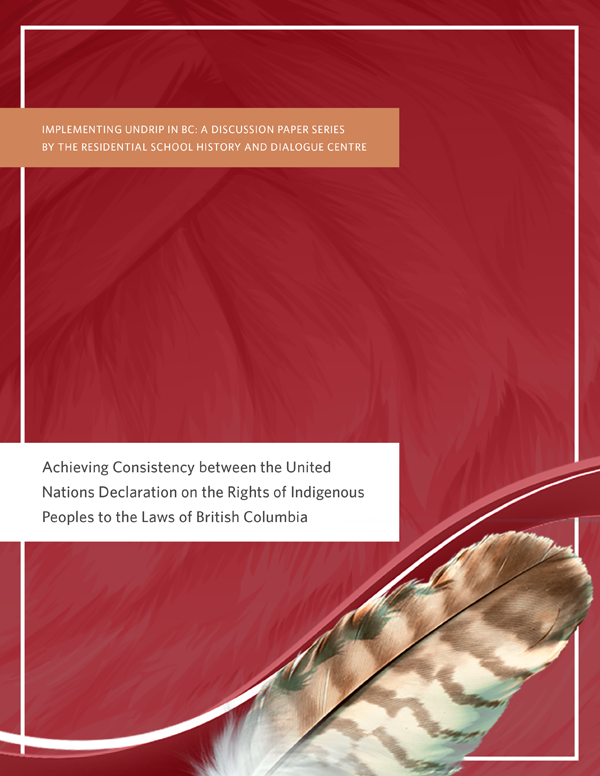
UNDRIP Article 1 – Considering the Legal and Human Rights Framework for Achieving Consistency between the United Nations Declaration on the Rights of Indigenous Peoples to the Laws of British Columbia
March 2020
The paper proposes some of the legal and policy issues that governments must address, in consultation and cooperation with Indigenous peoples, if a proper and serious framework for This paper addresses questions about the application of the UN Declaration to the laws of British Columbia. It explains the importance of using a human rights lens with the implementation of the UN Declaration by recognizing the impact of colonialism on marginalized communities, and not only the collective matters of land and governance.
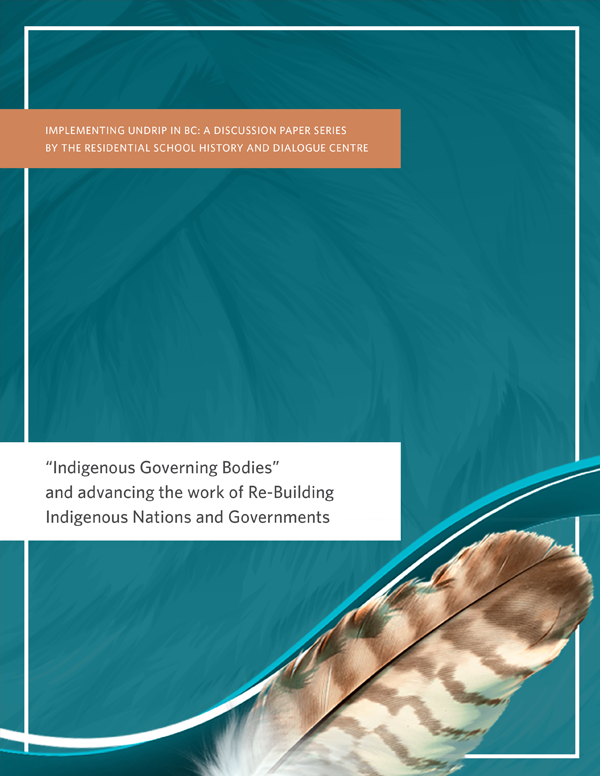
UNDRIP Article 2 – “Indigenous Governing Bodies” and advancing the work of Re-Building Indigenous Nations and Governments
March 2020
The Declaration on the Rights of Indigenous People Act (DRIPA) includes provisions for the government to enter into agreements with “Indigenous governing bodies.” DRIPA defines an Indigenous governing body as “an entity that is authorized to act on behalf of Indigenous peoples that hold rights recognized and affirmed by section 35 of the Constitution Act, 1982.” This definition is the subject of significant speculation and discussion.
Therefore, to help build understanding and informed dialogue, this paper tracks observations and analyses the definition and interpretation of DRIPA’s “Indigenous governing bodies.”
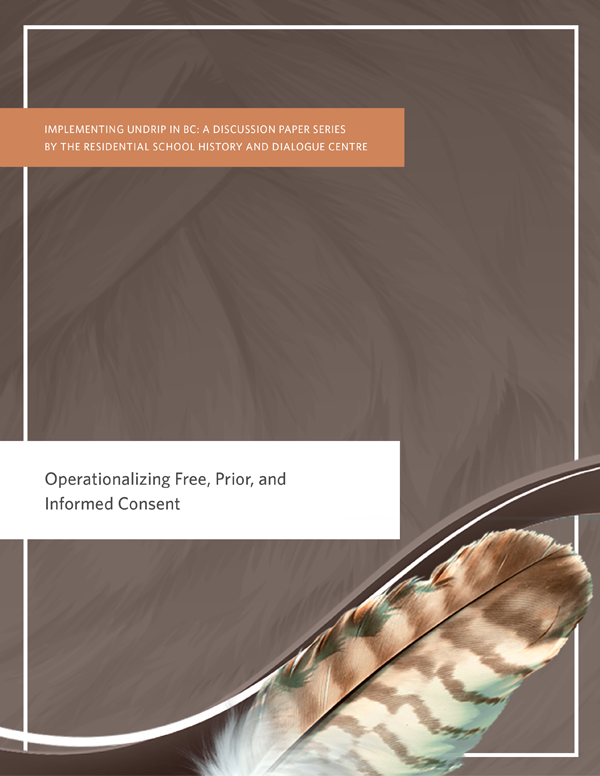
UNDRIP Article 3 – Operationalizing Free, Prior, and Informed Consent
March 2020
This paper discusses the practical implementation of consent-based decision making, and emphasizes the difference between consultation between governments before a decision is made, and a genuine joint decision. It explains three basic models of implementing consent between Crown and Indigenous governments, and notes the increase in proper recognition and implementation of Indigenous jurisdictions.
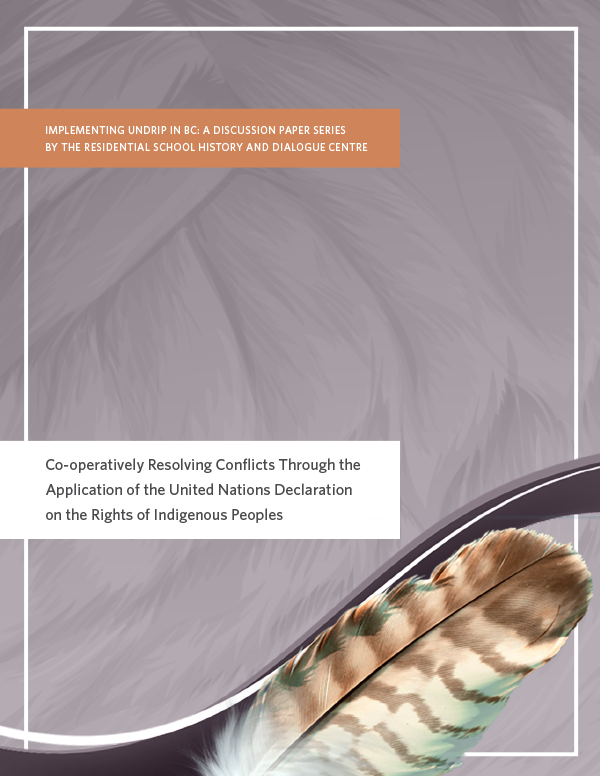
UNDRIP Article 4 – Co-operatively Resolving Conflicts Through the Application of UNDRIP
March 2020
This paper addresses challenges in co-operative approaches to addressing conflicts in government, and explains the way DRIPA helps advance these approaches. It also discusses the shift to a focus on the recognition and implementation of Indigenous rights, and the emphasis is being placed on moving away from adversarial forums and modes of engagement to new, principled, modes of co-operation.
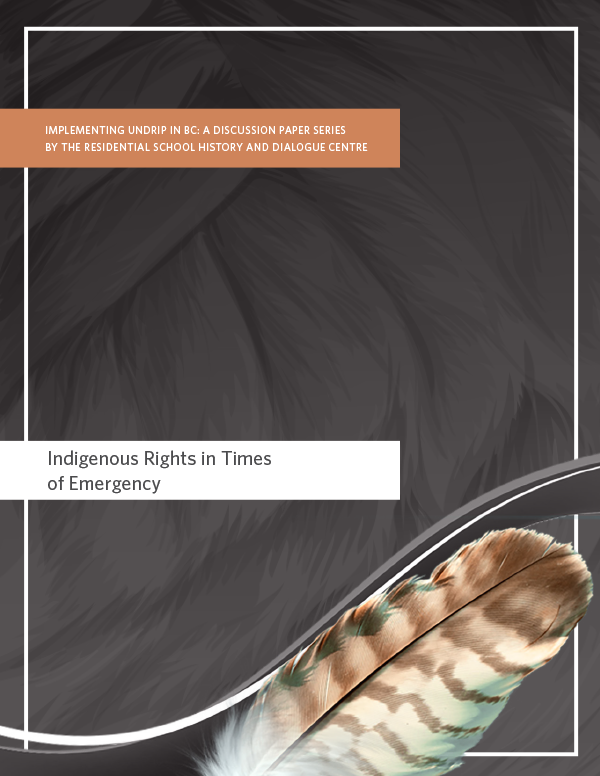
UNDRIP Article 5 – Indigenous Rights in Times of Emergency
March 2020
This paper discusses the (amplified) effects of world crises on the human rights of Indigenous peoples. It recognizes the unforeseen effects of COVID-19 on various vulnerable populations, and the ways previous emergencies have affected these populations. It addresses the questions about the process of reconciliation, and the ways in which it may be stalled, and ways that the priorities of reconciliation may need to change in order to continue moving forward.
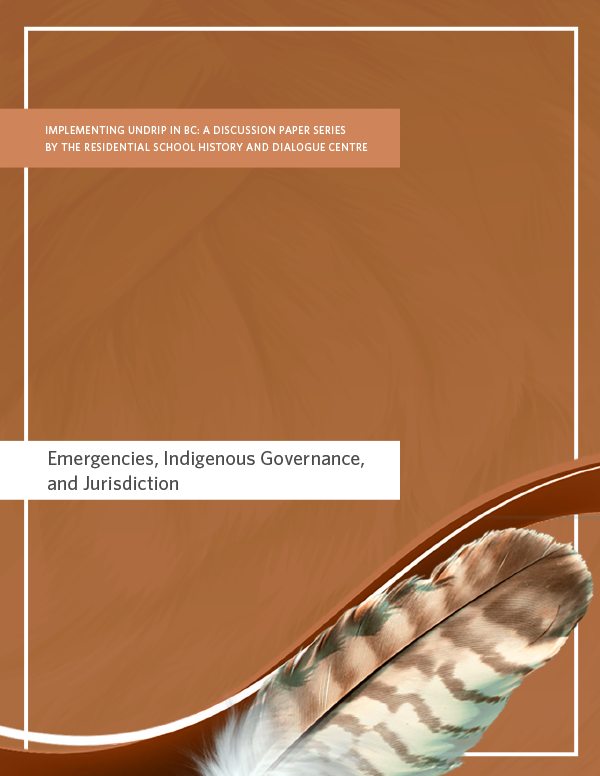
UNDRIP Article 6 – Emergencies, Indigenous Governance and Jurisdiction
March 2020
This paper discusses how the recent pandemic due to COVID-19 has reinforced the importance in the recognition, implementation and right to self-govern. This paper works to form proper connections between Indigenous communities and Crown jurisdictions, laws and levels of government. As we prepare for possible pandemics similar to COVID-19 and attempt to strengthen governance in times of distress, this paper serves as a jumping off point in the right to self-governance and reconciliation.
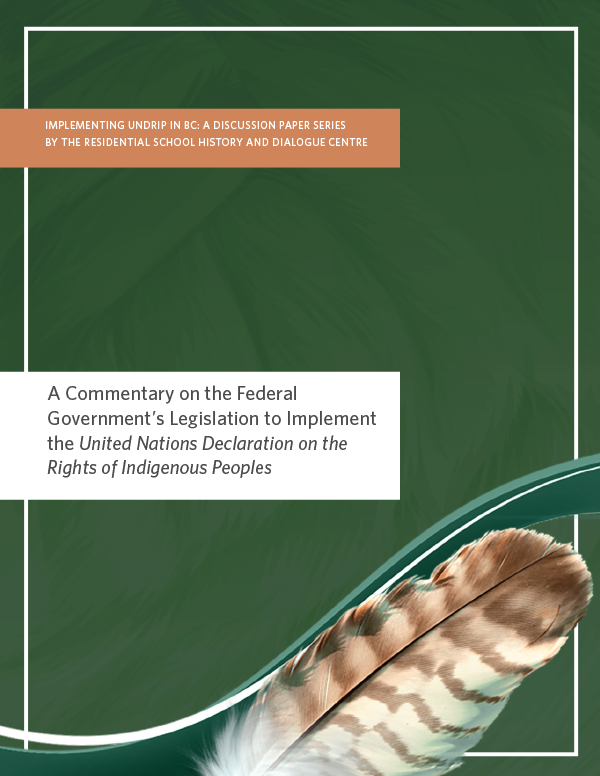
UNDRIP Article 7 – A Commentary on the Federal Government’s Legislation to Implement the United Nations Declaration on the Rights of Indigenous Peoples
January 2021
The seventh paper in the UNDRIP paper series is a commentary on the federal government’s proposed legislation (Bill C-15) to implement the UN Declaration. This legislation was made public in December 2020 and has spurred much dialogue and debate.
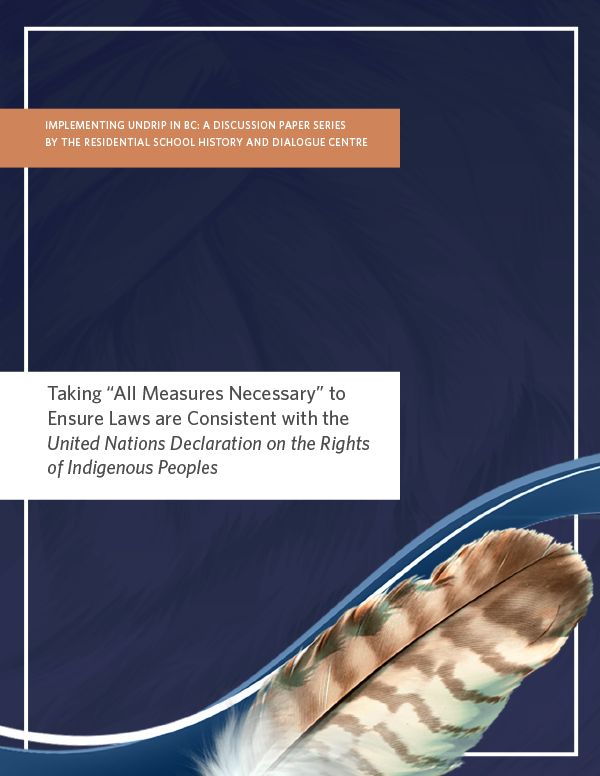
UNDRIP Article 8 – Taking “All Measures Necessary” to Ensure Laws are Consistent with the United Nations Declaration on the Rights of Indigenous Peoples
April 2021
This paper discusses the federal government’s proposed legislation, Bill C-15, in context with BC’s Declaration on the Rights of Indigenous Peoples Act. The paper discusses legislative developments and obligations to ensure that laws are consistent with UNDRIP.